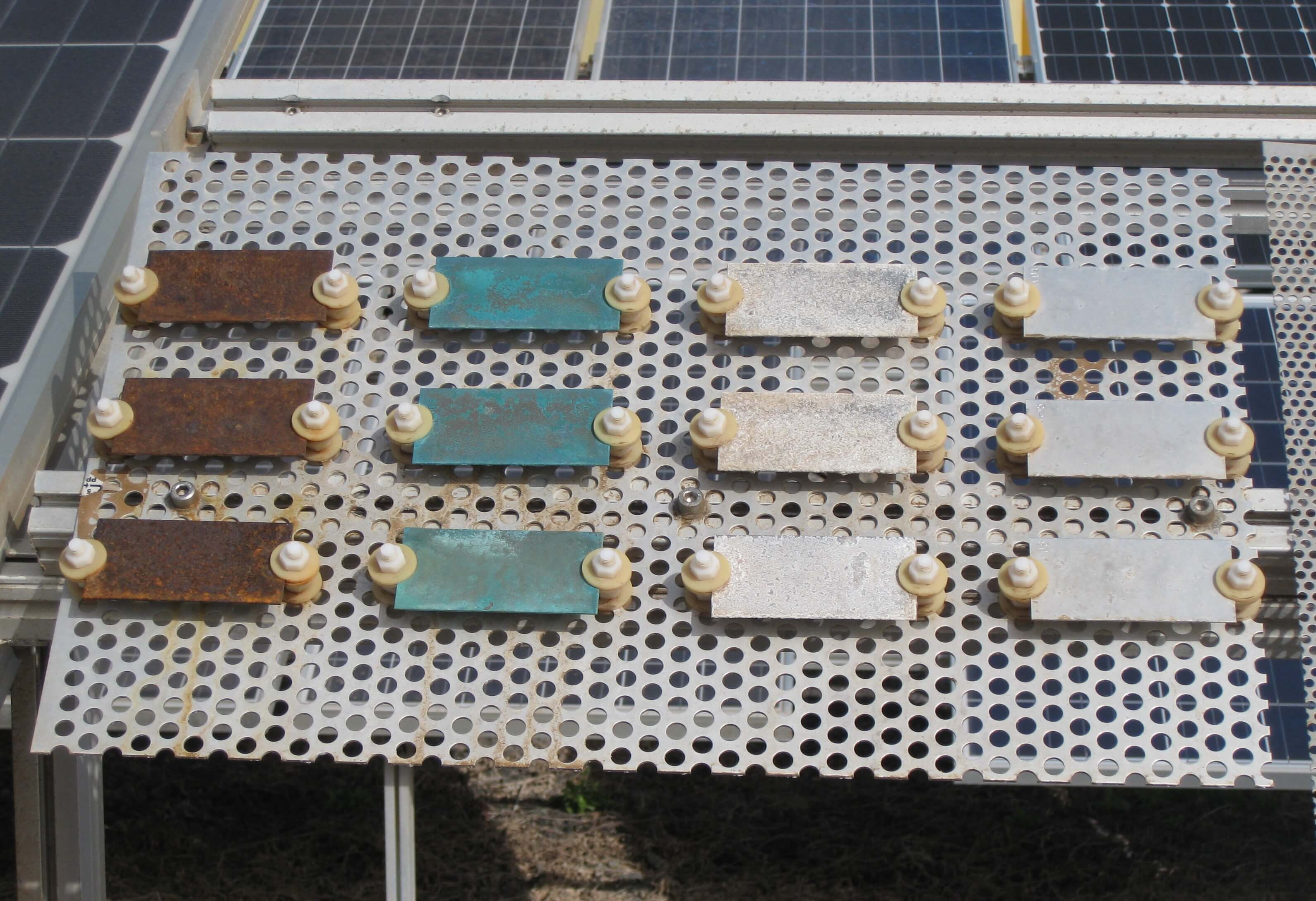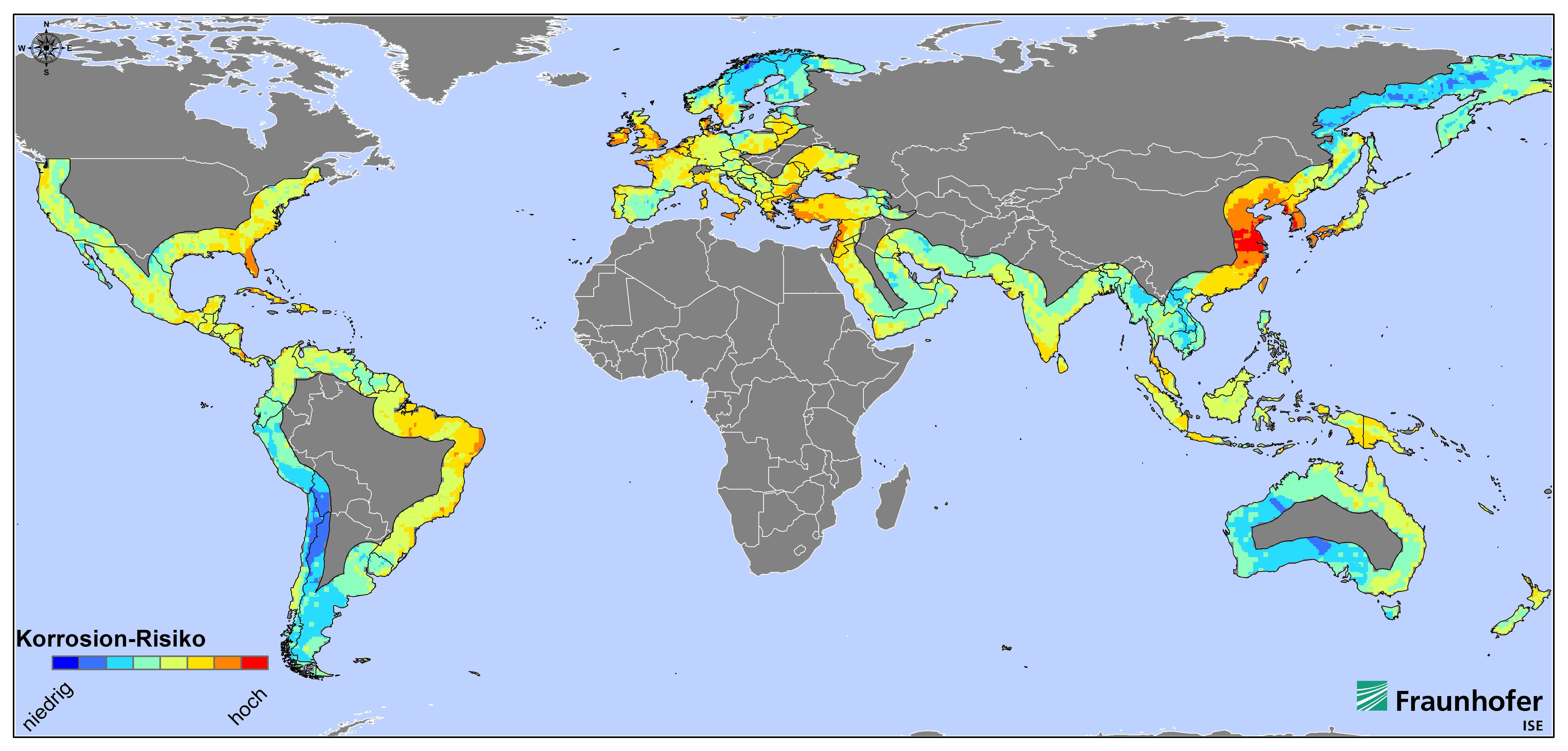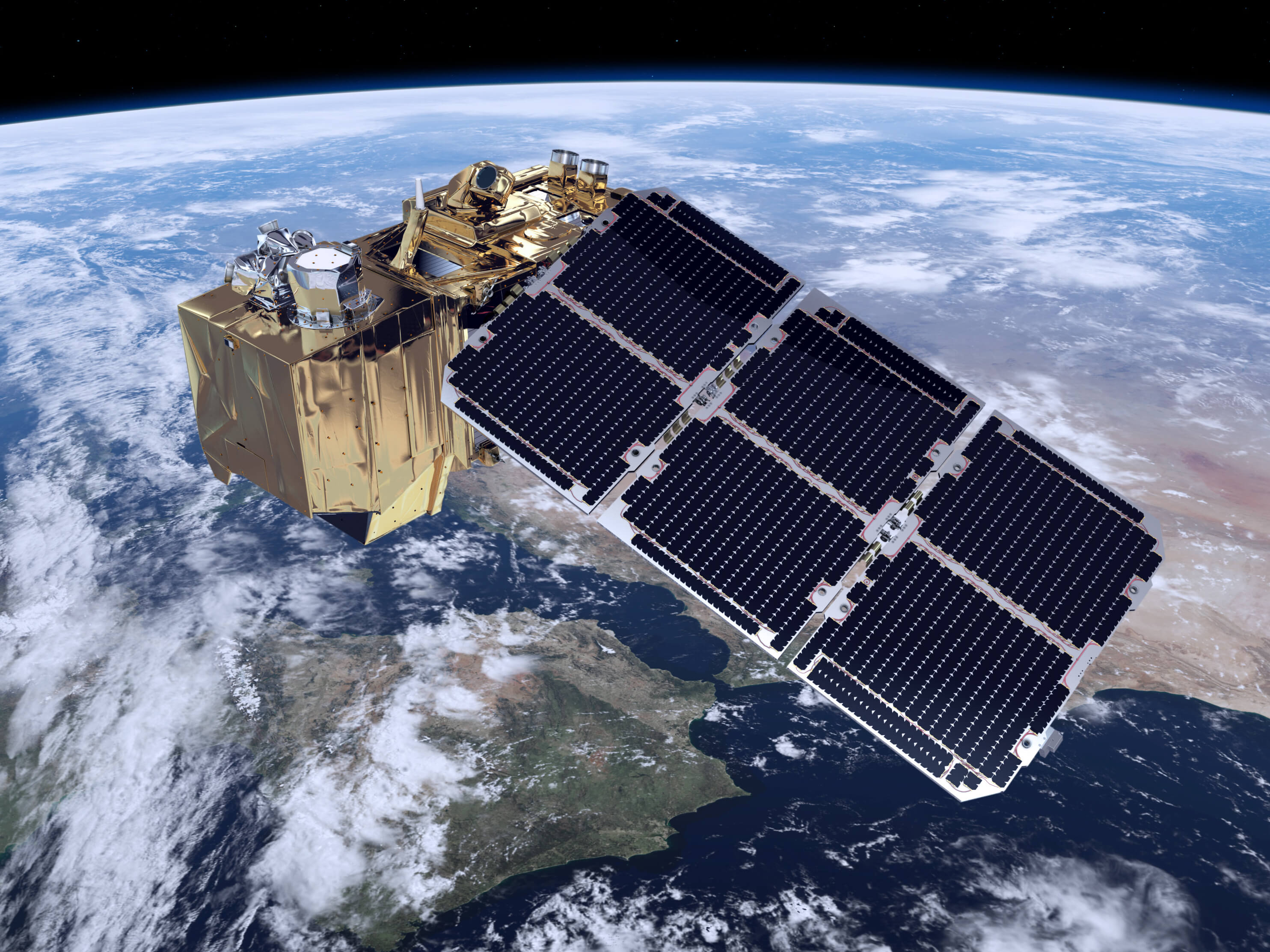| Duration: | April 2015 - March 2018 |
| Contracting Authority/ Sponsors: | Ministry of Science, Research and the Arts, Baden-Württemberg , Ministry of Finance and Economy, Baden-Württemberg, Fraunhofer Gesellschaft |
| Project Partners: | Department of Remote Sensing Freiburg, Albert Ludwigs University Freiburg |
| Webseite: | http://www.leistungszentrum-nachhaltigkeit.de/pilotprojekte/globe-solar/ |
| Project Focus: |
GloBeSolar – Global Load Classification System for Solar Technical Materials



The economic and ecological sustainability of installed solar systems is principally dependent on the longest possible product lifetime and maximum reliability. However, due to outdoor exposure in different climate zones of the earth, many of them with harsh environmental conditions, the various materials used in solar power systems are negatively affected by stress factors such as UV radiation, atmospheric corrosivity, dust accumulation, thermal cycling or moisture ingress into components. The pilot project “GloBe Solar” focuses on the development of a global stress classification system for materials in solar energy applications. The aim of this system is to assist in the identification of the individual stress conditions for every location on the earth’s surface to reduce investment risk and operating and maintenance costs.
In the transition from fossil and nuclear fuels to renewable and sustainable energy sources, solar energy plays an important role globally, with even increasing relevance in the near future. There is a large and still mainly unused potential for the conversion of solar irradiation into electricity and heat especially in the sunny regions of the earth. The economic and ecological sustainability of installed solar systems is principally dependent on the longest possible product lifetime and maximum reliability. However, due to outdoor use, partly under extreme environmental conditions, the differentmaterials in solar energy applications are exposed to high environmental stress.These stress may induce one or more types of module degradation such as yellowing/browning of polymeric encapsulates, delamination of polymeric encapsulates and back sheets due to UV impact, heat and humidity, corrosion of connections or potential induced degradation. . Depending on the geographical location, the individual or combined impact of environmental stress and corresponding performance losses vary significantly. Therefore, as a strategy to reduce investment risks and operating and maintenance costs, it is necessary to adapt the materials and components of solar energy systems specifically to regional environmental conditions. Thus, within the scope of the “GloBeSolar” pilot project, an global area-covering stress classification system is developed formaterials in solar energy applications to identify the individual stress condition for every location on the earth´s surface. The implementation is mainly based on processing of satellite data and ground-based measurements from historical meteorological and earth observation data. In this project, the expertise of Fraunhofer ISE in material aging and environmental simulation and the Chair for Remote Sensing and Landscape Information Systems of University Freiburg in spatial data processing and geodata infrastructures complete one another towards achieving the defined goals.